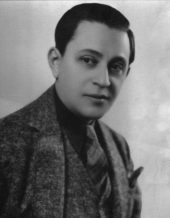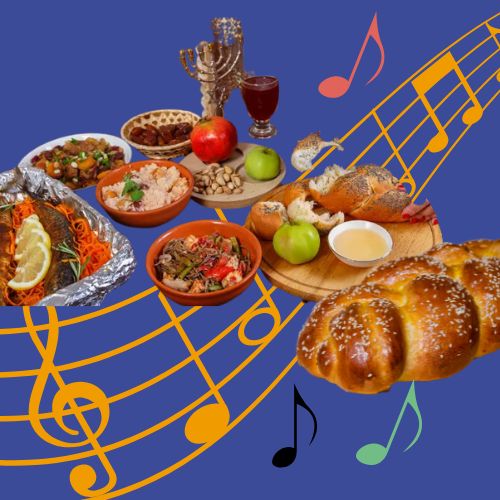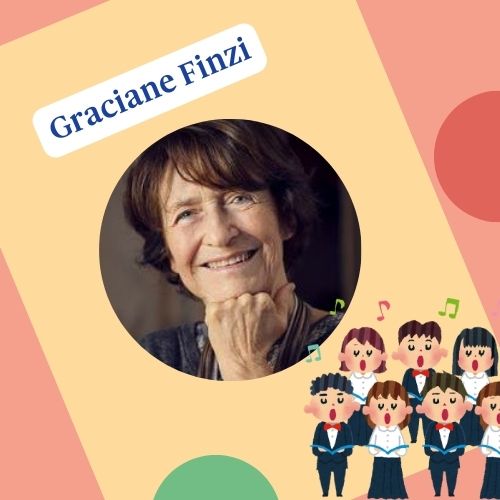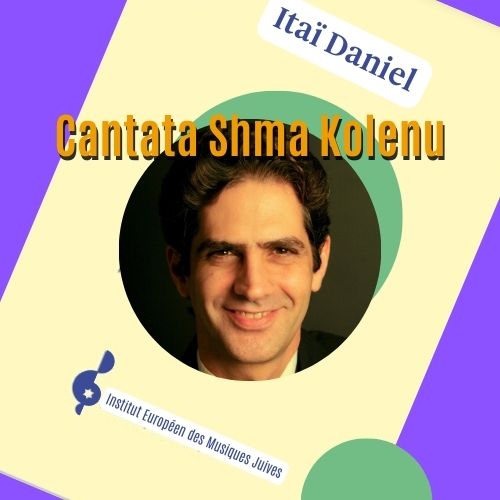
Alexander Olshanetsky was one of the most prominent composers and conductors on Second Avenue, NY and one of the most sophisticated musicians of the Yiddish theatre.
Born in Odessa, in Ukraine, he received both a traditional Jewish education, and a modern Western education. As a boy, he sang in synagogue’s choirs, and started to learn the violon at the age of 6. He also learned other instruments.
A confirmed musician, he played in the orchestra of Odessa’s opera, and participated in tours through Russia and Siberia. Afterwards, he became conductor of a Russian operetta. During his military service, where he was a music conductor in his regiment, he travelled to Kharbin, in Manchuria, in the North East of China, where he met a Yiddish theatre troupe of which the conductor was Peretz Sandler. When the latter emigrated to USA, Olshanetsky took his position in Kharbin. He started writing Yiddish songs and the music of Yitzhak Kaplan’s play, Tsurik aheym kayn tsien (Le Retour à Sion).
After travelling through Siberia, Japan, China and India with a new Russian operetta troupe, he went back to Kharbin in 1921, where he noticed that all Yiddish theatres had disappeared.
In 1922, he emigrated to the USA, where his uncle Hyman Meisel was already settled. Meisel then became his step-father, when he married his cousin, the Yiddish singer and actress Bella Meisel (Mysell) who, later, would remarry Herman Yablokoff. He then became involved in the art of Yiddish Theatre. Later, he left for Cuba to lead a theatre troupe. Back in New-York, he worked successively for two Yiddish theatres, (the « Lenox » in Harlem and the « Liberty » in Brooklyn) before getting « promoted » to the National Theatre, the prestigious theatre of the city center. Then, in 1929, after writing several successful operettas, he rewrote parts of the music of Glodfaden’s classical opera, Bar khokhba, as he started performing on the radio.
From 1925, and until his death, the name Olshanetsky became omnipresent on all of Second Avenue, and his operettas were performed in almost all the big theatres. He then became the first music director of the Concord Hotel. Some of the most renowned cantors of that time considered him, by far, as the best conductor due to his understanding of the sensitivity of the cantorial language and its rhythmic freedom. He also wrote several liturgical pieces, of which most of were never published.
Olshanetsky had a particular gift in writing elegant melodic lines with a very developed dramatic meaning. He was able to combine these elements and create music for a wide audience. Joseph Rumshinsky, his older colleague, but also rival, wrote in his memoirs that Olshanetsky intuitively understood the musical desires of Jewish immigrants, that he brought to the Yiddish Theatre « dream romances », and a « Gypsy Russian » type of language. His last operetta was called Ale viln khasene hobn (Everyone wants to get married).
Among his most knowned songs, let’s mention Ikh hob dikh tsufil lib, Ikh bin fakhlib, Glik, Unter beymer…
By Neil W. LEVIN
Learn more



